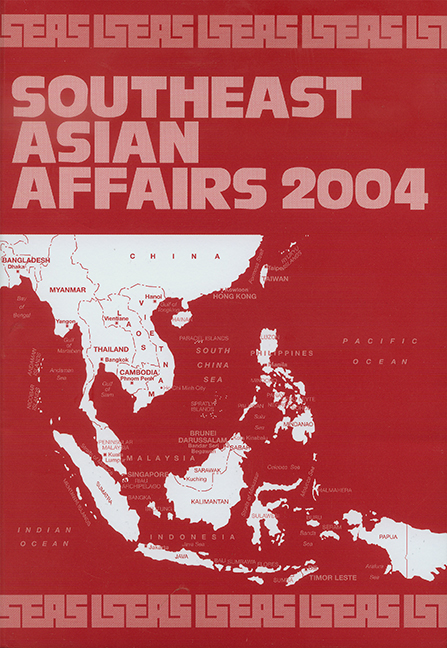Cambodia: Strongman, Terrible Man, Invisible Man, and Politics of Power Sharing
from CAMBODIA
Published online by Cambridge University Press: 21 October 2015
Summary
In Cambodia 2003 was an election year in which the results of the ballot were apparently not accepted by those who lost the election. The incumbent Prime Minister Hun Sen (the strongman), the opposition leader Sam Rainsy (the terrible man), and the National Assembly president Prince Ranariddh (the invisible man) could not agree upon a satisfactory power-sharing formula, with the latter two joining up in an attempt to deny the former of the country's premiership despite a convincing victory by Hun Sen's Cambodian Peoples' Party (CPP) in the July election. The outcome was the dissolution of the ruling coalition, a hung (suspended) government, and an uncertain political climate that prevailed throughout the second half of the year.
The Political Scene
Pre-Election Politics
The year started rather inauspiciously with anti-Thai riots in Phnom Penh in late January (see below), just two weeks after the start of the voter registration period for the July election. The edict issued by the Mohanikaya Buddhist Sect leader that urged monks to refrain from voting in the upcoming general election also resulted in expressions of unhappiness and concern amongst pro-democracy groups and human rights organizations during January. With political parties jostling to capitalize on the nationalistic fervour aroused by that unfortunate event involving Thailand, the gradual build-up of political tensions in the run-up to the general election was further aggravated. The murder of a senior monk on 6 February and the killing of Om Radsady, adviser to Prince Ranariddh, on 18 February further raised the political temperature despite government claims that the latter was the outcome of a botched robbery attempt. In the same month, the visiting U.S. Deputy Assistant Secretary of State Matthew Daley, after meeting with the FUNCINPEC (National United Front for an Independent, Neutral, Peaceful and Co-operative Cambodia) and SRP (Sam Rainsy Party) leaders, revealed that he had expressed to them his serious concerns about the rising level of intimidation and violence in the country and publicly urged the government to reverse the trend.
- Type
- Chapter
- Information
- Southeast Asian Affairs 2004 , pp. 73 - 86Publisher: ISEAS–Yusof Ishak InstitutePrint publication year: 2004



